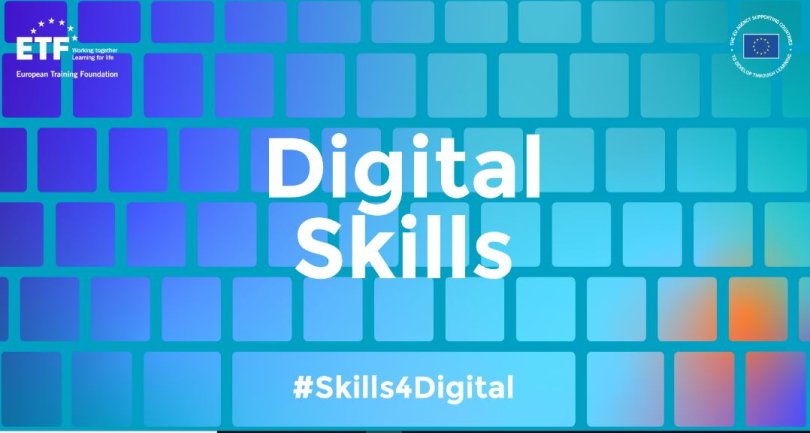
Digital Skills in the EU's neighbourhood
Digital Skills in the EU's neighbouring regions is the focus of the ETF’s March communication campaign. For the whole month, experts and practitioners at national, regional, and international level will share evidence and opinions on digital skills and learning and their importance for jobs and growth, and how education and training systems are preparing the future workforce and empowering citizens. Stay tuned to our various channels with #Skills4digital.
Why digital skills?
Digital skills cut across many policy areas. They are necessary for economic competitiveness and critical to job creation and employability. A lack of digital skills and learning opportunities create a ‘digital divide’ exacerbating the exclusion of those persons and communities already vulnerable and marginalised in society, as witnessed during the pandemic.
The ETF’s mapping reports on the response of education and training systems in the EU's neighbourhood during the health crisis give an overview of the coping mechanisms and responses of education and training systems, businesses, schools, teachers, students and their families, often using unfamiliar and untried technology and imperfect systems and infrastructure. It is important to learn from this experience to inform future policy choices and enhance the quality and access to digital skills and learning.
The ETF has been actively supporting the development of digital skills and learning within a lifelong learning perspective, in partnership with key stakeholders and other international and donor organisations. We provide targeted policy advice to partner countries and implement several initiatives to prepare for the future, some of which are outlined below.
What is the ETF doing?
The ETF supports the development of the digital key competence for students and educators through supporting innovations in learning and the curricula through the Creating New Learning initiative, and helping schools to improve their digital readiness by using the SELFIE tool.
'Industry 4.0 and digitalisation' is one of 8 themes in the ETF initiative Network of Excellence offering a platform for continuous exchange of practice among new and existing centres of excellence at local, national, or international level. This initiative also supports public-private partnerships , an essential component of good governance which the ETF advocates in all our partner countries to bridge the widening gap in skills and labour market matching due to digital disruption.
We are engaged with business through the Skills for Development initiative to support them to develop skills, including digital skills, and upskilling and reskilling. At the same time, as indicated in the ETF's publication "Changing Skills for a Changing World" and discussions on platform work, ETF is raising attention to protecting the well-being and rights of digital workers.
What is the EU policy basis?
The ETF’s works within the EU's external action providing policy advice to partner countries informed by the European Skills Agenda (including the Green Deal, the European Pillar on Social Rights, the Pact for Skills, and the Vocational Education and Training Recommendation); the Digital Education Action Plan within the European Education Area, Digital Competence Framework for Citizens, and Digital Competence Framework for Educators; and the EU Industrial Strategy, amongst others.
Did you like this article? If you would like to be notified when new content like this is published, subscribe to receive our email alerts.